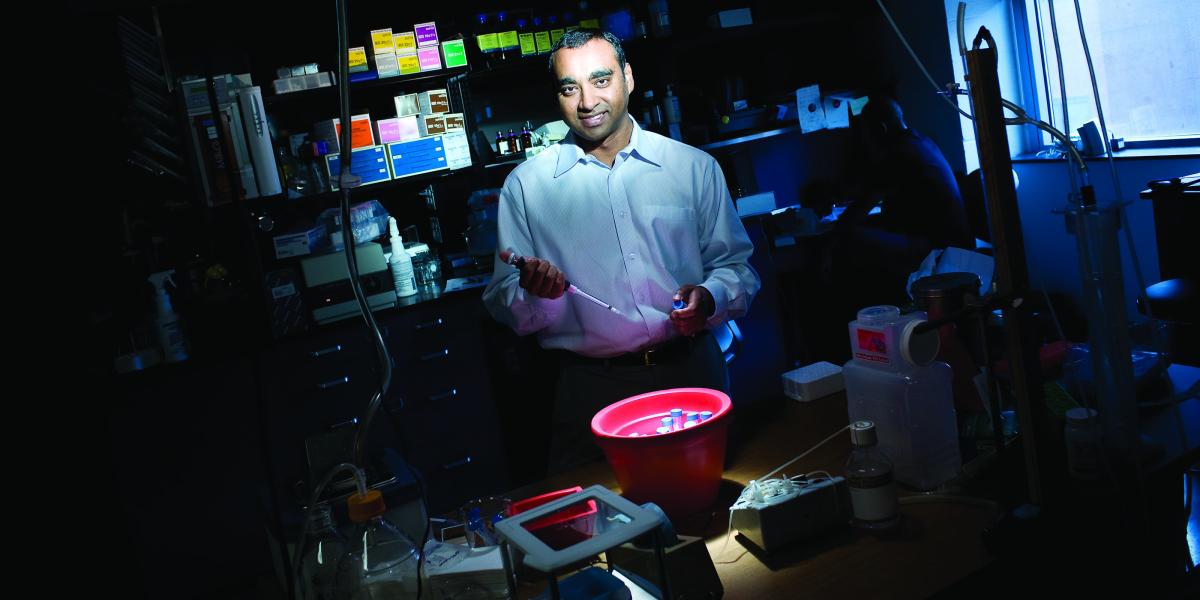A New Link to Lung Disease
The fourth-leading cause of death in the U.S. is chronic obstructive pulmonary disease (COPD), and by 2030 it is projected to be the third most common killer worldwide. Almost everyone who gets it is a smoker.
And yet, only 20 percent of smokers will eventually develop COPD. Shyam Biswal, PhD, an associate professor of Environmental Health Sciences with a joint appointment in the Division of Pulmonary and Critical Care Medicine at the Johns Hopkins School of Medicine, wanted to understand why.
His research suggests that the difference between smokers who get COPD and those who don't lies in the workings of a master antioxidant regulatory gene called NRF2. The work could point the way to new possibilities for treatment.
"In response to any kind of environmental stresses, which could be smoking or air pollution or any kind of stress, we have evolved a system which tries to fight back by altering gene expression," Biswal says.
NRF2 is part of that system, playing an important role in switching on genes that neutralize harmful oxidants. Previous research has shown that NRF2 is implicated in the workings of 50 separate antioxidants and hundreds of other genes as well.
In 2004, Biswal showed that mice that had been genetically engineered without working NRF2 genes and then exposed to cigarette smoke developed emphysema much more quickly than normal mice.
New research extends the evidence to humans. Conducted by a team of Hopkins researchers led by Biswal, along with colleagues at the University of British Columbia and the University of Chicago, it is published in the September American Journal of Respiratory and Critical Care Medicine.
The researchers obtained lung tissue samples from smokers who showed no symptoms of COPD and others who had advanced COPD. The COPD sufferers had significant reduction in the levels of NRF2 protein compared with the non-COPD smokers, suggesting that the COPD sufferers were somehow not enjoying NRF2's protective effects.
Biswal also found a possible mechanism for the damage. A gene called DJ-1 protects the NRF2 protein from damage, but its expression was reduced in the COPD sufferers. It's still not clear why some people have the reduced DJ-1 expression, Biswal says.
But the work does suggest that drugs aimed at protecting NRF2 proteins might someday have a protective effect against COPD, Biswal says.
The work is especially important, he says, because COPD incidence is increasing, and there is no cure besides lung transplant. "Now there is some hope of therapy," he says.
